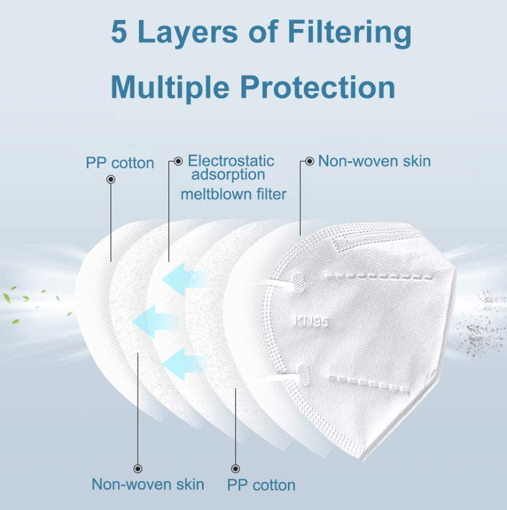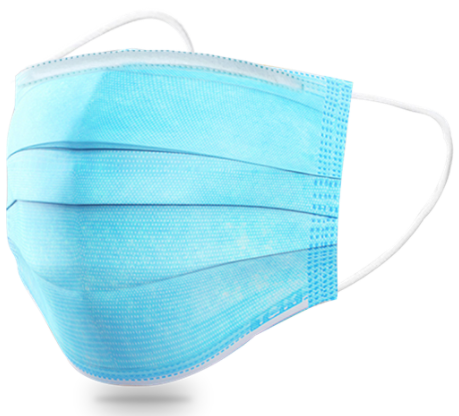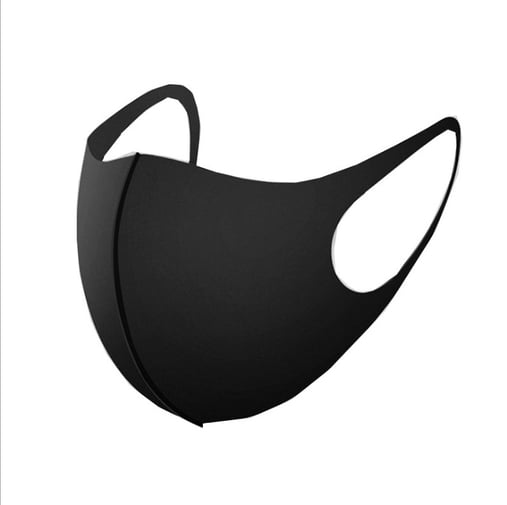With COVID-19 cases still on the rise, local and state governments are pulling out all the stops in hopes of slowing the spread of the disease. 2020 has brought on a lot of new changes in Americans’ typical day-to-day routines, but none have been as predominant as the introduction of the facial covering. These face masks once reserved for medical professionals and trade workers have quickly become the must have for any activity in the world of COVID-19. As of Monday July 27th, Indiana joined the 34 other states whose governors have officially mandated the use of face masks or facial coverings while out in public areas whether indoor or outdoor.
Governor Eric Holcomb’s #MaskUpHoosiers initiative does have a few exceptions including an exception for children under the age of 8. However, as school begins to start up, many districts are making their own mask mandates for students. Given the timing of both of these events, it is no surprise that face coverings have quickly become a must have of the summer for 2020. That being said, there is a wide range of acceptable face coverings so you may be wondering which mask will you need to wear? According to the CDC Guidelines, any cloth face covering will do. However in today’s blog post we will be breaking down the three main categories of facial coverings so you can decide which will work best for you as you #MaskUpHoosiers!
Respirators
N95, KN95, FFP2, P2, these may seem like a bunch of random numbers but depending on their country of origin they are each members of the first class of civilian facial coverings called filtering facepiece respirators (FFR). Sometimes referred to as disposable respirators, these are the top of the line facial coverings when it comes to protect wearers from breathing in hazardous contaminants in the air. Plus, according to a 3M study published in May of 2020, all of these masks are pretty evenly matched when compared to each other. What makes the respirators so special is their multiple layers of filters that allow the mask to filter out 95% of airborne particles. This filtration standard is where the N95 and KN95 get their unique names. It is also a filtration rating that neither the surgeon masks or cloth coverings achieve, as both do not protect the wearer from breathing in small particles, gases, or chemicals in the air.
Disposable Facemasks / Surgeon Masks
The most common facial covering that you associate with the medical world, the 3ply surgeon mask has become a hot commodity for businesses of varying industries. Whether you’re clocking in at an office, factory, retail store, or restaurant, there is no easier way to ensure that employees are working with a clean face mask than offering disposable facemasks. Primarily designed as a protective barrier to prevent splashes, sprays, large droplets, or splatter from entering the wearer’s mouth and nose. Through the same process, disposable facemasks also prevent the wearer’s bodily fluids from spreading into the air. This can help stop the spread of COVID, especially when working with others. Their disposable nature is a double-edged sword as it helps keep their cost down but also limits each mask to a one-time use.
Cloth Masks
What they lack in filtration, they make up for in style! People have been getting pretty creative with the patterns and styles of their cloth face masks. Unfortunately, this style ultimately does not have much substance to it. As mentioned earlier in this blog, cloth masks do not protect the wearer from breathing in small particles, gases, or chemicals in the air. That being said, cloth masks still help prevent the wearer from spreading respiratory droplets that may spread COVID-19. Which is why so many states, including Indiana, have mandated the use of facial coverings in public areas. Luckily cloth masks are easily available through a number of different avenues. I’ve seen them sold in just about every store but you can even make your own as a craft at home. My neighbor was nice enough to make some cloth masks for my wife and I back in May! If you are a neighbor of ICC, or just a resident of Marion County then you can also apply here to get an Indy Cloth Mask. The most important thing to remember when using a cloth face mask is that you have to wash it every day in order for it to remain effective.
No matter which facial covering you decide to use, all that matters is that you choose one. We all need to do our part and #MaskUpHoosiers if we want to continue to have some normalcy to our everyday routines. It wasn’t too long ago that Hoosiers were under a Stay-at-Home mandate and I am sure no one wants to return to it. Regardless of which mask works best for you, you can be sure to find all three options available through ICC as well as many other COVID Essentials.
Still in the mood for reading? Check out our blog to read other interesting lists and insights into the business world.






